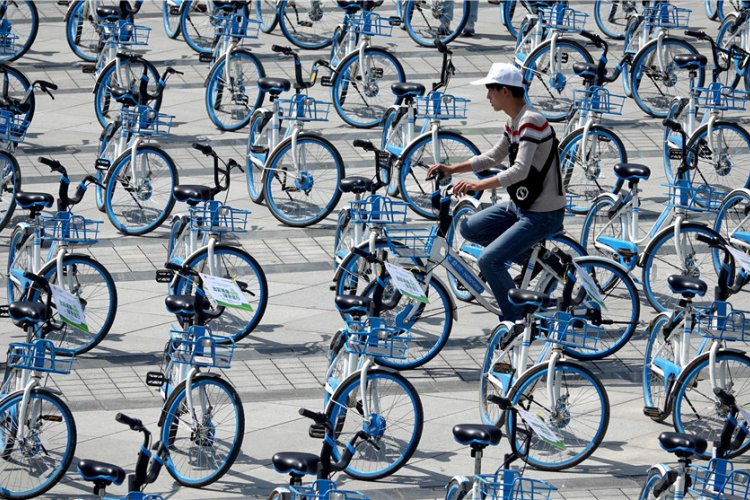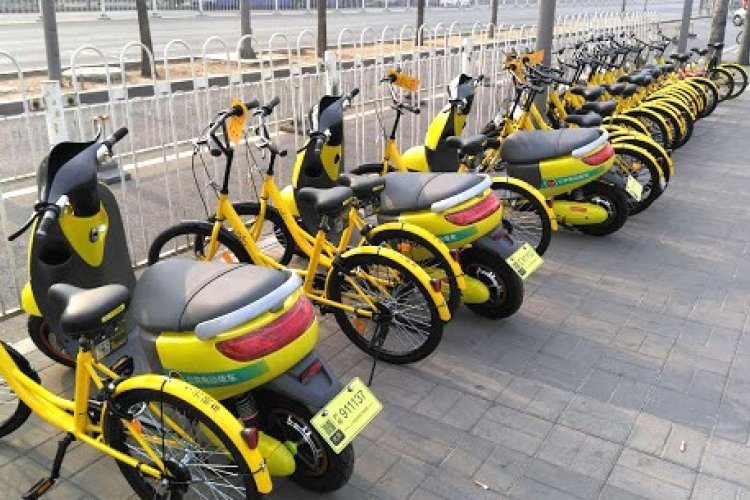Splits, Rifts & Walkouts: China & the World at Copenhagen
The Beijinger has been watching the machinations at the Copenhagen climate talks with keen interest, partly because the negotiations carry implications for the entire planet, and partly because emissions are such a pressing daily issue for those living in China’s capital. Plus there's the fact that China is one of the key players in the negotiations.
Despite positive noises between the US and China in the lead up to the talks, a deep split has emerged between the two economic giants, though the points of contention are pretty predictable. The US is pressuring China and other heavily polluting developing nations to take on more ambitious targets – a stance that is a little hypocritical given the way the US has dragged its feet on reducing its own emissions.
For its part, China rejects American insistence on independent monitoring of any targets, claiming “China's own legal guarantees and verification procedures are adequate,” according to AFP.
China also maintains that since the West is historically responsible for most of the carbon (and other pollutants) in the planet’s atmosphere, the cost of making cuts in the developing world should be partly shouldered by developed nations. Interestingly, Chinese Vice-Foreign Minister He Yafei seemed to renounce China’s own claim for financial assistance in an interview yesterday with the Financial Times. He was quoted as saying:
"Financial resources for the efforts of developing countries [to combat climate change are] a legal obligation…That does not mean China will take a share – probably not... we do not expect money will flow from the US, UK [and others] to China."
However, The Global Times reported this morning: “An official from the Ministry of Foreign Affairs, who asked not to be named, told the Global Times that the British newspaper had misinterpreted He's speech. Pang Jun, a scholar at the School of Environment and Natural Resources at Renmin University of China, said Beijing had never dropped its demand for funding and related rights.”
The developed and non-developed world is also split over whether to retain the framework established under the Kyoto Protocols or start over. Yesterday the “G77” group, representing 130 developing nations, walked out of negotiations for a time, accusing richer nations of trying to kill the Kyoto Protocols.
The wrangling highlights the fundamental problems undermining attempts to reach international consensus on environmental issues. Western countries happily poured pollutants into the air, soil and water for decades or even centuries before cleaning up their environments, to a degree, in recent decades. In contrast, China has made huge commitments to clean energy technology and public transport infrastructure early in its development. As a recent post on the Lost Laowai blog notes, China’s rapidly expanding subway networks leave public transport services in many Western cities for dead.
The problem, as Evan Osnos discusses in a recent post for The New Yorker, is that despite China’s efforts, the country is “so big — and is growing so fast — that in 2006 it passed the United States to become the world’s largest producer of greenhouse gases. If China’s emissions keep climbing as they have for the past thirty years, the country will emit more of those gases in the next thirty years than the United States has in its entire history.”
The Global Times reported on one aspect of this incredibly rapid growth just this morning, with a claim that Beijing’s car fleet will hit 4 million this month. The report traces Beijing’s growth in car ownership in frightening terms, claming that while it took 48 years from 1949 for the number of cars in the whole of China to reach 1 million, Beijing’s fleet alone went from 2 to 3 million between August 2003 and May 2007. Two and a half years later we’ve already hit the 4 million mark.
So where does this leave the talks in Copenhagen? Despite the public disagreements, walkouts and protests, many reports concur that there is simply too much riding on the talks for no agreement to be reached. Chinese Premier Wen Jiabao is expected to arrive in Copenhagen tomorrow, where he will join over 100 other world leaders, including US President Obama, in what promises to be an eventful final two days of negotiations.
Related stories :
Comments
New comments are displayed first.Comments
![]() antfarmks5
Submitted by Guest on Fri, 12/18/2009 - 09:22 Permalink
antfarmks5
Submitted by Guest on Fri, 12/18/2009 - 09:22 Permalink
Re: Splits, Rifts & Walkouts: China & the World at ...
Perhaps Herbie was pointing out the foibles of British journalism. President Obama will almost certainly not travel... Almost certainly not indeed! Ahem.
And "learnt"? C'mon...
![]() danedwards
Submitted by Guest on Wed, 12/16/2009 - 10:21 Permalink
danedwards
Submitted by Guest on Wed, 12/16/2009 - 10:21 Permalink
Re: Splits, Rifts & Walkouts: China & the World at ...
Care to explain MrGe?
![]() MrGe
Submitted by Guest on Tue, 12/15/2009 - 22:31 Permalink
MrGe
Submitted by Guest on Tue, 12/15/2009 - 22:31 Permalink
Re: Splits, Rifts & Walkouts: China & the World at ...
Danedwards talking about being behind the times...
![]() danedwards
Submitted by Guest on Tue, 12/15/2009 - 15:56 Permalink
danedwards
Submitted by Guest on Tue, 12/15/2009 - 15:56 Permalink
Re: Splits, Rifts & Walkouts: China & the World at ...
Hi Herbie,
You're a bit behind the times I'm afraid. As has been widely reported, Obama confirmed he would attend Copenhagen weeks ago.
http://news.xinhuanet.com/english/2009-11/25/content_12539470.htm
http://www.telegraph.co.uk/earth/copenhagen-climate-change-confe/6654467/Barack-Obama-will-attend-Copenhagen-climate-conference.html
http://www.npr.org/templates/story/story.php?storyId=120818794
http://www.google.com/hostednews/ukpress/article/ALeqM5ju5Rb0-j1VQhGEq4r-EZ2HxBLbEg
![]() admin
Submitted by Guest on Tue, 12/15/2009 - 15:13 Permalink
admin
Submitted by Guest on Tue, 12/15/2009 - 15:13 Permalink
Re: Splits, Rifts & Walkouts: China & the World at ...
4 million cars? Awesome. I can't wait until they pave the remaining tiny islets of greenspace to create new lanes for even more automobiles.
![]() Herbz
Submitted by Guest on Tue, 12/15/2009 - 15:10 Permalink
Herbz
Submitted by Guest on Tue, 12/15/2009 - 15:10 Permalink
Re: Splits, Rifts & Walkouts: China & the World at ...
President Obama will almost certainly not travel to the Copenhagen climate change summit in December and may instead use his Nobel Peace Prize acceptance speech to set out US environmental goals, The Times has learnt.
http://www.timesonline.co.uk/tol/news/environment/article6888165.ece
8}
Validate your mobile phone number to post comments.






